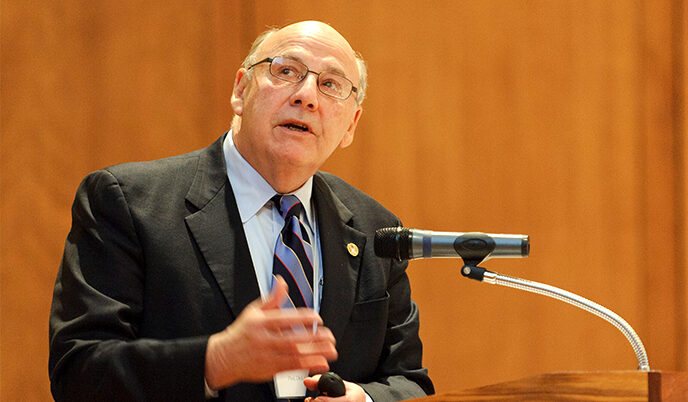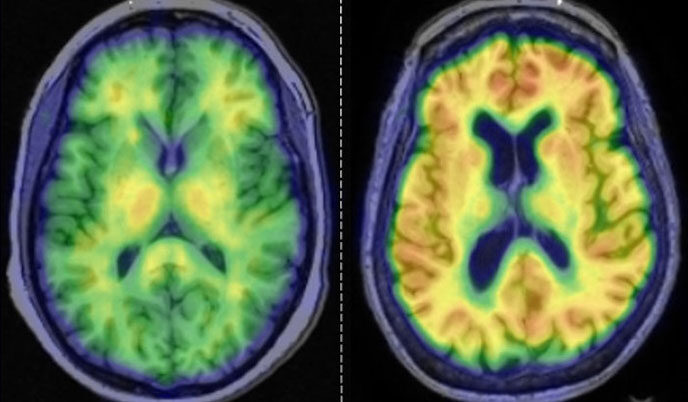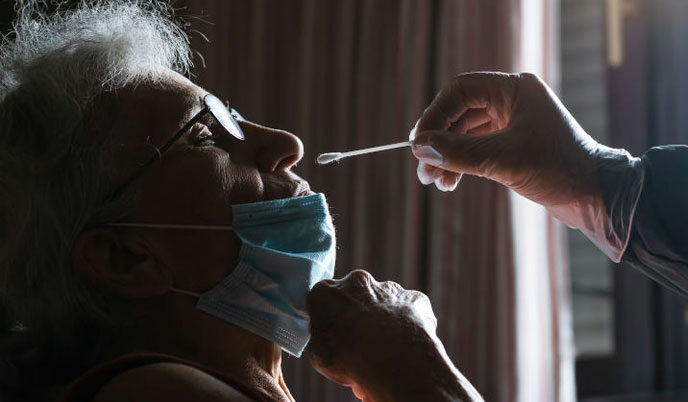
Paul DeLuca, longtime researcher and leader, dies at 79
Paul M. DeLuca Jr., PhD, a longtime researcher and leader at the University of Wisconsin School of Medicine and Public Health and UW–Madison, died on Oct. 30 at the age of 79.

UW study examines potential treatment for Alzheimer’s disease
Researchers at the University of Wisconsin School of Medicine and Public Health are investigating whether the drug leuprolide, which is approved for prostate cancer in men, can be used to treat symptoms of Alzheimer’s disease in women.

Scott Reeder named chair of radiology
Renowned academic leader and researcher Dr. Scott Reeder has been named chair of the Department of Radiology at the University of Wisconsin School of Medicine and Public Health.

Téllez-Girón earns prestigious Ohtli Award from Mexican government
Dr. Patricia Téllez-Girón, associate professor of family medicine and community health at the University of Wisconsin School of Medicine and Public Health, is the esteemed face of health care and education in Madison’s Latinx/e community and across Wisconsin. In celebration of her efforts, this month she received the Ohtli Award, the highest recognition awarded by the government of Mexico to a Mexican community leader in the United States or other countries.

UW study seeks IBD patients to study effectiveness of updated COVID-19 vaccines
Researchers at the University of Wisconsin School of Medicine and Public Health are investigating how well the updated monovalent COVID-19 vaccines work for inflammatory bowel disease patients.

New gene-editing technique holds potential for treating childhood blindness
Using a new experimental technique to fix faulty eye cells, a team led by UW–Madison researchers was able to repair a gene mutation that causes one form of childhood blindness. The scientists showed that their approach worked in lab-grown cells derived from a patient with the currently untreatable inherited disease Leber congenital amaurosis (LCA) and a mouse model that mimics the disease.

Study explores midlife factors associated with blood biomarkers of neurodegeneration and Alzheimer’s disease
Lifestyle and chronic health conditions in middle age, along with a person’s education level, show associations with emerging blood markers of neurodegeneration and Alzheimer’s disease, according to a new study by researchers at the University of Wisconsin School of Medicine and Public Health.

Study finds teens, young adults benefit from clinician advice about safe social media use
Teens and young adults who received a brief social media counseling session during a health care visit remembered the lessons and reported safer online behavior six months later, according to a large new study from the University of Wisconsin School of Medicine and Public Health.

Richard Keller named chair of Medical History and Bioethics
Richard Keller, a distinguished scholar of the social and historical dynamics of climate change and natural disasters, has become the next chair of the Department of Medical History and Bioethics at the University of Wisconsin School of Medicine and Public Health.

Tamara Scerpella to become chair of Orthopedics and Rehabilitation
Dr. Tamara Scerpella, a nationally renowned orthopedic surgeon, academic leader, mentor and researcher, will become the next chair of the Department of Orthopedics and Rehabilitation at the University of Wisconsin School of Medicine and Public Health.

Nursing home residents benefit from rapid flu testing
Rapid on-site testing of nursing home residents for influenza allowed earlier detection of outbreaks, faster treatment with antiviral medication and much lower hospitalization rates, according to a new study from researchers at the University of Wisconsin School of Medicine and Public Health.

Clinical trial for severe dry mouth treatment launching soon at UW
The UW Health | Carbone Cancer Center and UW Program for Advanced Cell Therapy, or PACT, will soon begin a clinical trial using a recently developed cell therapy to treat severe dry mouth, which is a significant symptom of graft-versus-host disease and Sjögren’s disease.